Die Cast Heat Sink Manufacturing
Precision die casting technology for complex geometry heat sinks. High-volume production with exceptional cost-effectiveness and superior thermal performance for automotive, electronics, and LED applications.
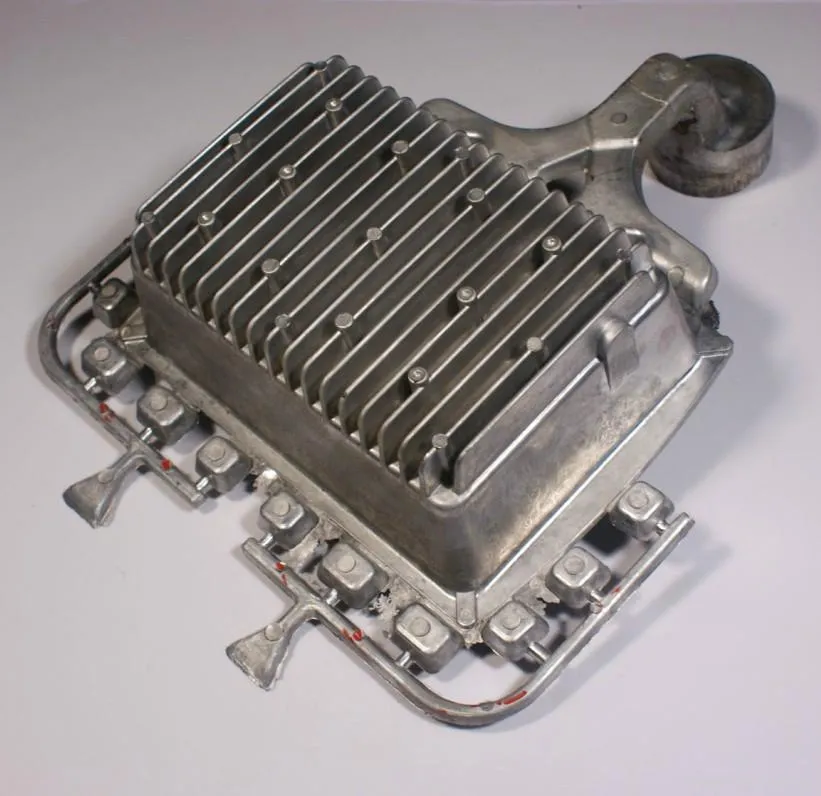
Why Choose Die Cast Heat Sinks?
Die casting technology offers unmatched advantages for heat sink manufacturing, delivering superior performance, cost-effectiveness, and design flexibility.
Complex Geometries
Create intricate internal structures and complex fin patterns impossible with other manufacturing methods.
Cost Effective
Reduce costs by up to 30% compared to machined alternatives, especially for high-volume production runs.
High Volume Ready
Optimized for production runs of 5,000+ pieces with consistent quality and fast turnaround times.
Superior Finish
Achieve excellent surface finish and dimensional consistency with minimal post-processing required.
Die Casting Manufacturing Process
Our advanced die casting process ensures precision, quality, and efficiency in every heat sink we manufacture.
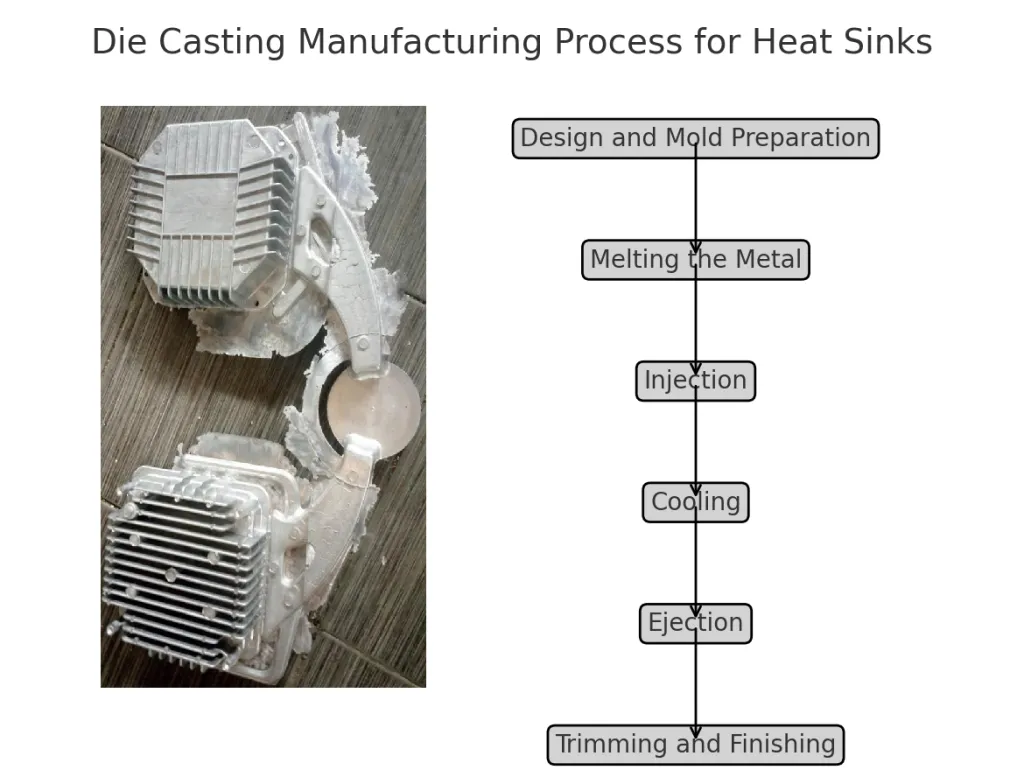
Precision Die Casting Technology
Our die casting process involves injecting molten aluminum or zinc alloy into precision steel molds under high pressure. This creates heat sinks with exceptional dimensional accuracy and surface quality.
Mold Preparation
Precision steel molds are preheated and prepared for casting
Metal Injection
Molten metal is injected under high pressure into the mold cavity
Cooling & Ejection
Rapid cooling followed by precise ejection and finishing
Design & Tooling
Custom mold design and precision tooling fabrication
Metal Melting
Aluminum or zinc heated to optimal casting temperature
High Pressure Casting
Molten metal injected under extreme pressure
Quality Control
Rigorous inspection and finishing processes
Material Options
Choose from aluminum and zinc alloys, each offering unique advantages for specific applications and performance requirements.
Aluminum Die Cast
A380, ADC12, A383 Alloys
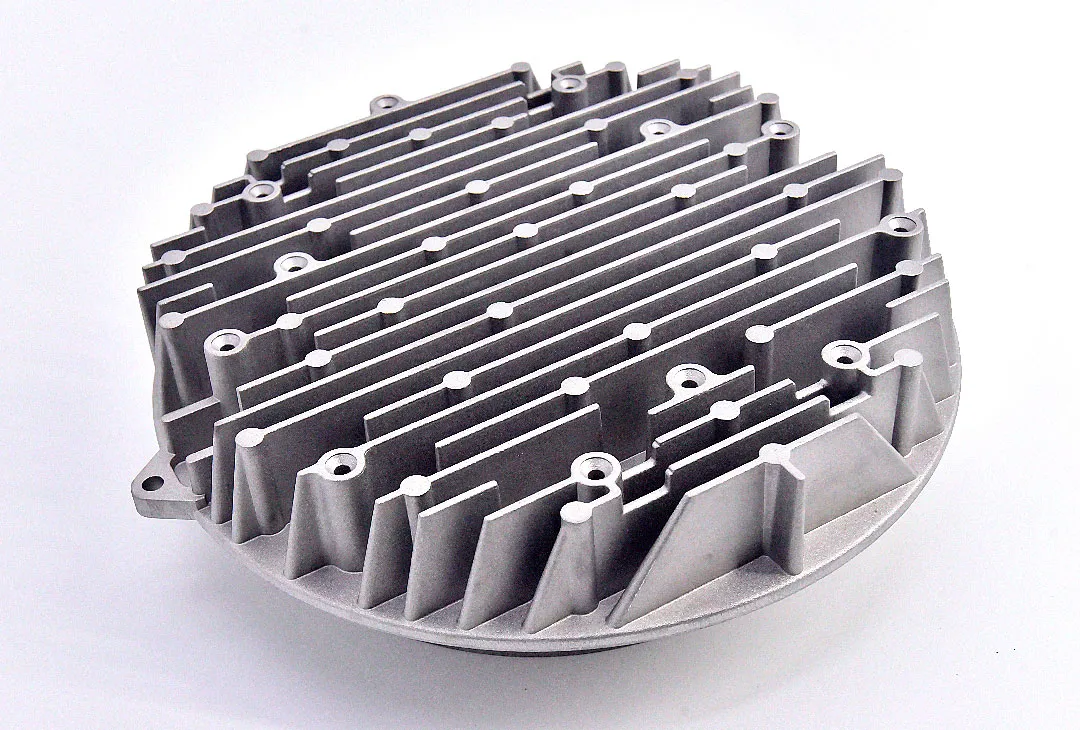
Key Advantages:
- Excellent thermal conductivity
- Lightweight construction
- Corrosion resistant
- Good machinability
Zinc Die Cast
ZA-8, ZA-12, Zamak Alloys
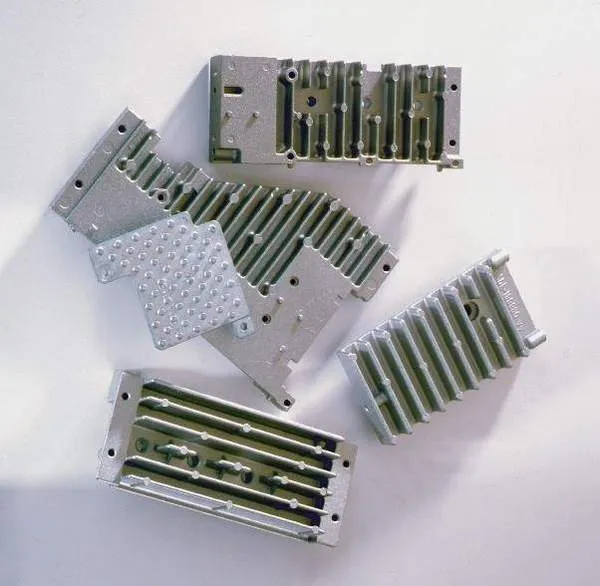
Key Advantages:
- Lower casting temperature
- Excellent dimensional stability
- Superior EMI/RFI shielding
- Cost-effective tooling
Die Cast Heat Sink Products
Our comprehensive range of die cast heat sinks covers various applications and industries with custom design capabilities.
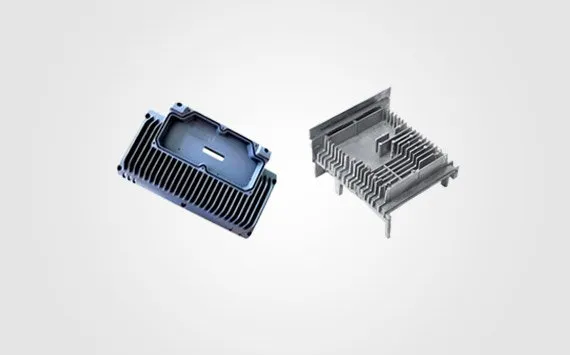
Complex Geometry Heat Sinks
Intricate internal channels and complex fin structures for maximum heat dissipation efficiency.
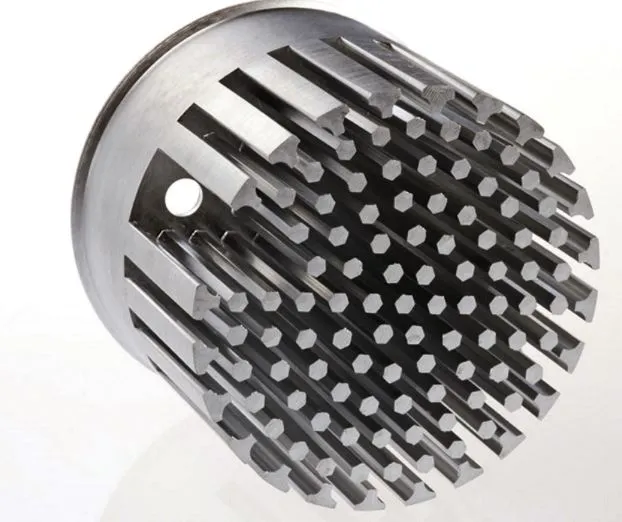
Automotive Heat Sinks
Robust designs for automotive electronics, transmission systems, and electric vehicle components.
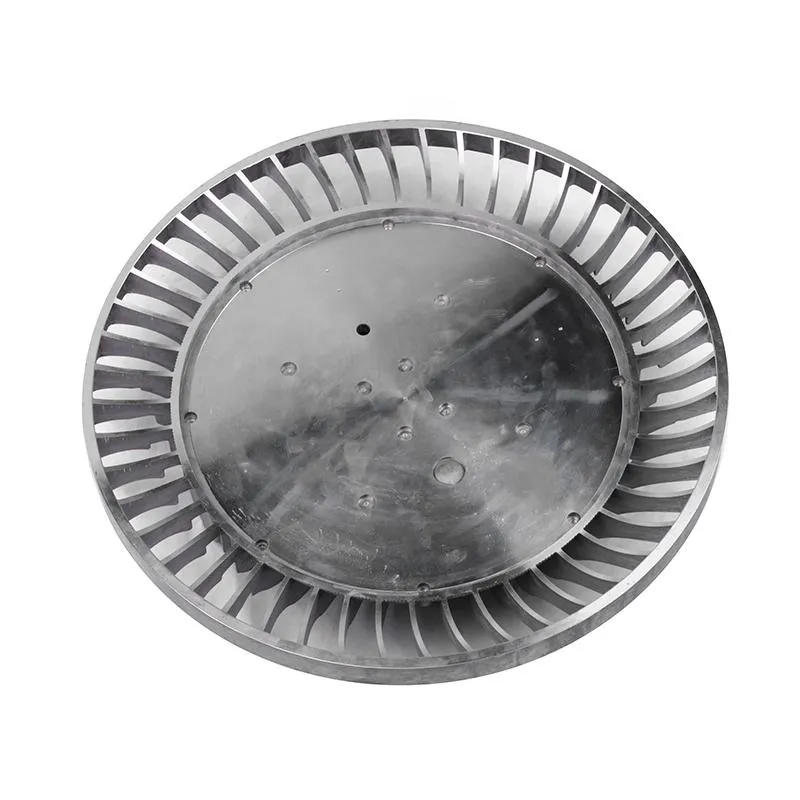
LED Heat Sinks
Specialized designs for LED lighting applications with integrated mounting features and optimal thermal paths.
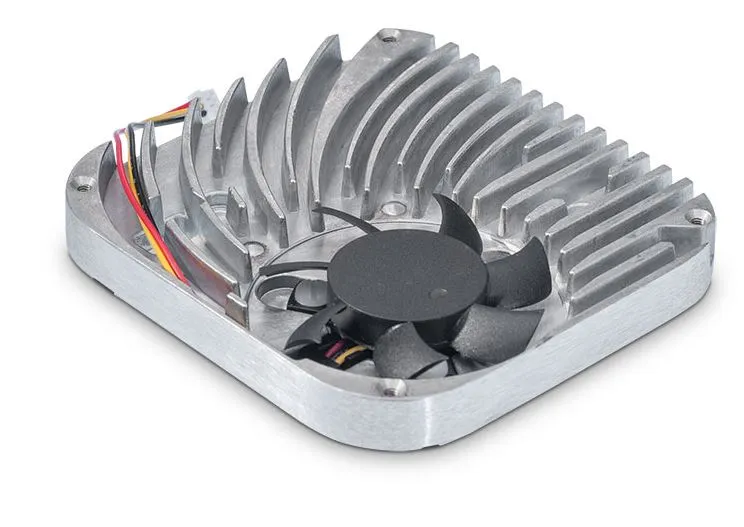
Electronics Heat Sinks
Precision heat sinks for consumer electronics, power supplies, and communication equipment.
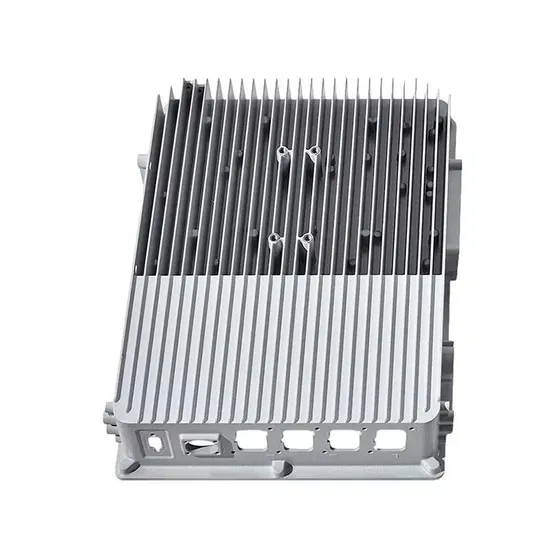
Custom Heat Sink Housings
Complete thermal management solutions with integrated housings and custom features.
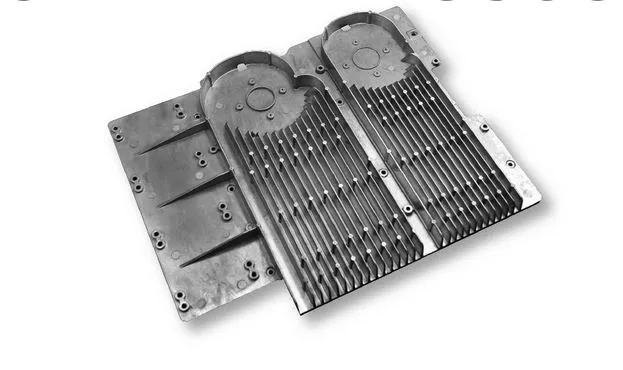
High Performance Zinc Heat Sinks
Superior thermal performance with zinc alloys for demanding applications requiring EMI shielding.
Industry Applications
Die cast heat sinks serve critical thermal management roles across diverse industries, from automotive to electronics.
Automotive Industry
Critical thermal management for electric vehicles, transmission control units, LED headlights, and battery housing systems.
- Transmission Control Units (TCU)
- Electric Vehicle Components
- LED Automotive Lighting
- Battery Management Systems
- Engine Control Units
Electronics & Computing
High-performance cooling solutions for power electronics, computing equipment, and consumer devices.
- Power Supply Units
- Server & Data Center Equipment
- Consumer Electronics
- Power Inverters
- Motor Controllers
LED Lighting
Specialized thermal solutions for LED street lights, architectural lighting, and commercial installations.
- High-Power LED Arrays
- Street Lighting Systems
- Architectural Lighting
- Commercial Spotlights
- Industrial LED Fixtures
Telecommunications
Reliable thermal management for base stations, network equipment, and communication infrastructure.
- 5G Base Stations
- Network Switches
- RF Amplifiers
Industrial Equipment
Robust cooling solutions for industrial drives, welding equipment, and automation systems.
- Servo Drives
- Welding Systems
- Automation Controllers
Technical Specifications
Comprehensive technical capabilities and specifications for our die cast heat sink manufacturing services.
Manufacturing Capabilities
Surface Finishes Available:
Quality Standards
Testing & Inspection:
- Coordinate Measuring Machine (CMM)
- Thermal Cycling Testing
- Material Composition Analysis
- Surface Roughness Testing
- Pressure Testing
Comparison: Die Cast vs Other Methods
| Feature | Die Casting | Extrusion | Machining | Cold Forging |
|---|---|---|---|---|
| Complex Geometries | ||||
| Cost Effectiveness | ||||
| High Volume Production | ||||
| Surface Finish |
Manufacturing Excellence
State-of-the-art facilities and advanced technology ensure consistent quality and efficient production.
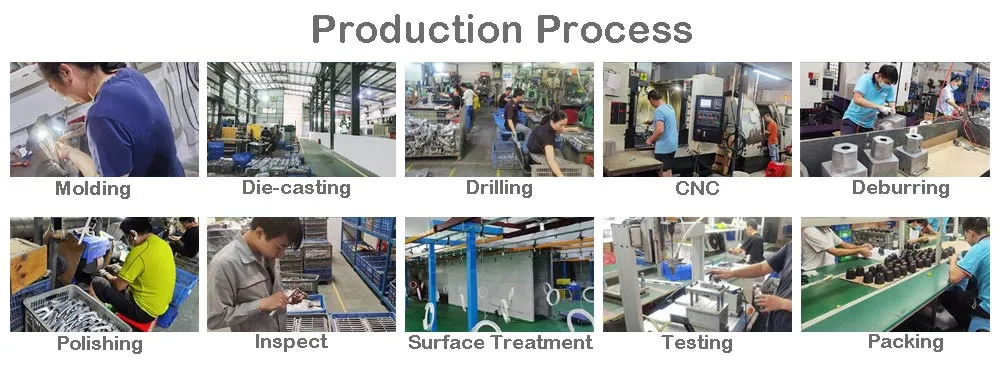
Advanced Production Capabilities
Our state-of-the-art die casting facilities feature the latest technology and equipment to ensure consistent quality, precision, and efficiency in every production run.
Automated Production Lines
Fully automated die casting systems with integrated quality control and real-time monitoring.
Quality Assurance
Comprehensive testing protocols including CMM inspection, thermal testing, and material verification.
Rapid Turnaround
Optimized production scheduling and inventory management for fast delivery times.
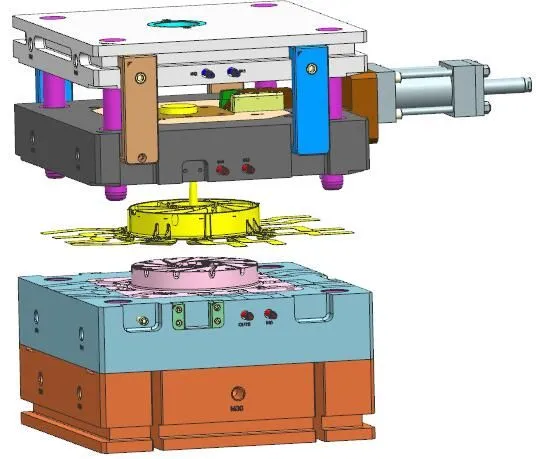
Precision Tooling & Design
Our in-house tooling capabilities enable rapid prototyping and cost-effective production tooling development, ensuring optimal part quality and production efficiency.
Ready to Start Your Die Cast Heat Sink Project?
Partner with us for cost-effective, high-quality die cast heat sink solutions. Our engineering team is ready to help optimize your thermal management design.
Frequently Asked Questions
Get answers to common questions about die cast heat sink manufacturing and design.
What are the main advantages of die cast heat sinks over extruded heat sinks?
Die cast heat sinks offer superior design flexibility, enabling complex internal geometries and intricate fin patterns that cannot be achieved through extrusion. They provide excellent dimensional consistency, superior surface finish, and are ideal for high-volume production with lower per-unit costs. Die casting also allows for one-piece construction, eliminating assembly requirements and potential thermal interfaces.
Which material is better for die cast heat sinks: aluminum or zinc?
The choice depends on your specific requirements. Aluminum offers excellent thermal conductivity (96-120 W/mK), lightweight construction, and good corrosion resistance, making it ideal for most applications. Zinc provides comparable thermal conductivity (115-120 W/mK), superior dimensional stability, excellent EMI/RFI shielding, and lower tooling costs. Zinc is often preferred for high-precision applications and when EMI shielding is required.
What is the minimum order quantity for die cast heat sinks?
Die casting is most cost-effective for high-volume production, typically with minimum order quantities starting at 5,000 pieces. This is due to the initial tooling investment required. However, the per-unit cost decreases significantly with higher volumes, making it extremely economical for large production runs of 10,000+ pieces.
How complex can the geometry be for die cast heat sinks?
Die casting excels at producing complex geometries including intricate internal channels, variable wall thicknesses, integrated mounting features, and complex fin patterns. We can achieve minimum wall thicknesses of 0.5mm, undercuts, internal cavities, and multi-directional cooling channels that would be impossible or extremely expensive with other manufacturing methods.
What surface finishes are available for die cast heat sinks?
We offer various surface finishes including as-cast (natural), shot blasting for improved surface texture, anodizing for enhanced corrosion resistance and electrical insulation, powder coating for color and protection, electroplating for specific electrical properties, and precision machining for critical surfaces. The choice depends on your application requirements and aesthetic preferences.
How long does tooling development take for die cast heat sinks?
Tooling development typically takes 3-4 weeks from design approval, depending on complexity. Our in-house tooling capabilities allow for rapid development and modifications. We provide detailed tooling drawings for approval before manufacturing begins, and our tools are designed for long life (100,000+ cycles) to ensure consistent quality throughout the production run.
What tolerances can be achieved with die casting?
Die casting can achieve excellent dimensional tolerances of ±0.1mm for most features, with even tighter tolerances possible with post-machining. The process provides superior dimensional consistency across large production runs, making it ideal for applications requiring precise fit and assembly. Critical dimensions can be held to ±0.05mm with selective machining.
Are die cast heat sinks suitable for automotive applications?
Yes, die cast heat sinks are excellent for automotive applications. They meet stringent automotive quality standards (IATF 16949), operate reliably in temperature ranges from -40°C to 130°C, provide excellent vibration resistance, and offer superior EMI shielding when needed. They're commonly used in transmission control units, electric vehicle components, LED automotive lighting, and engine management systems.
How do die cast heat sinks compare in cost to other manufacturing methods?
While die casting has higher initial tooling costs, the per-unit cost is significantly lower for high-volume production. Die cast heat sinks can be 30-70% less expensive than machined alternatives for volumes over 5,000 pieces. The cost advantage increases with volume, making die casting the most economical choice for high-volume applications requiring complex geometries.
What design considerations are important for die cast heat sinks?
Key design considerations include proper draft angles (typically 1-3°) for easy part ejection, uniform wall thickness where possible to prevent porosity, adequate fillet radii to reduce stress concentrations, strategic placement of gates and runners for optimal filling, consideration of parting line location, and design for efficient heat flow paths. Our engineering team provides design optimization support to ensure manufacturability and optimal thermal performance.
What quality certifications do you maintain for die cast heat sink manufacturing?
We maintain ISO 9001:2015 quality management certification and IATF 16949 automotive quality certification. Our products are RoHS and REACH compliant. We employ comprehensive quality control including CMM inspection, thermal cycling testing, material composition analysis, and statistical process control. Each production lot undergoes rigorous testing to ensure consistent quality and performance.
Can you provide prototyping services before full production?
Yes, we offer prototyping services using various methods including 3D printing for design validation, prototype tooling for small quantities (10-100 pieces), and pilot production runs to validate the full production process. This allows for design refinement and testing before committing to full production tooling, ensuring optimal results and reducing development risks.
